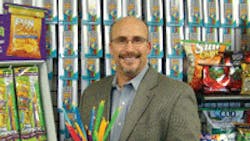For some executives, travel to foreign countries is akin to a state visit. Site visits are brief and ceremonial, followed by an American-style dinner in a downtown hotel. Dan Sackett takes a decidedly different approach. The president of First 2 Market Products, a consumer goods company which searches for inventions and brings them to market, goes native when he is on the prowl for the next product to introduce to his international distribution network.
"My typical mode is to stay in their neighborhood," he says of visits to potential business partners. "I want to stay in a two-star hotel down the street, eat lunch in the restaurant where you eat and meet your associates and colleagues." He is happy to stay in a factory dorm and take time to work on a factory line, all with the objective of understanding the culture of the people with whom he is doing business. The key, he adds, is to "get to know people on a personal basis rather than on a business, transactional basis."
Sackett, whose company is based in Perrysburg, Ohio, travels approximately 40% of his time to locations such as China, Taiwan, Hong Kong, Korea, India, Turkey and Vietnam. It was while he was at a trade show in China that he ran into a Korean manufacturer who had a simple but ingenious plastic product for sealing bags. Sackett says he had an "aha moment" about the potential for the product. It became the Gripstic, a product used for everything from sealing lunch bags to use in Japan to seal bags used to transport water as part of the tsunami relief effort.
Sackett offered these travel tips for fellow road warriors:
Manage the batteries. Keeping his smartphone charged and able to handle tasks such as e-mail exchanges on a bus in Hong Kong is a key to staying in touch with his co-workers and the factories he is visiting and being as productive as possible.
Sleep when you can. Even for veteran travelers, crossing time zones and rushing from place to place can be exhausting. Sackett says he runs on about 4-5 hours of sleep a day, and tries to take naps when possible to keep functioning. His advice on first arrival after a long flight: "When you get off the plane, go to the hotel, go to the workout room and exercise. That will put your body back into some mode of normalcy."
Try the local cuisine. Sackett's says he gets excited to try local dishes in Asia, where more parts of animals are served than in the United States. While he enjoys food such as chicken feet served breaded and fried, he is happy not to know too much about some of the food he eats. "If I am eating what I think are noodles and they turn out later to be snakes, I am good with that," he says.
About the Author
Steve Minter
Steve Minter, Executive Editor
Focus: Leadership, Global Economy, Energy
Call: 216-931-9281
Follow on Twitter: @SgMinterIW
An award-winning editor, Executive Editor Steve Minter covers leadership, global economic and trade issues and energy, tackling subject matter ranging from CEO profiles and leadership theories to economic trends and energy policy. As well, he supervises content development for editorial products including the magazine, IndustryWeek.com, research and information products, and conferences.
Before joining the IW staff, Steve was publisher and editorial director of Penton Media’s EHS Today, where he was instrumental in the development of the Champions of Safety and America’s Safest Companies recognition programs.
Steve received his B.A. in English from Oberlin College. He is married and has two adult children.
